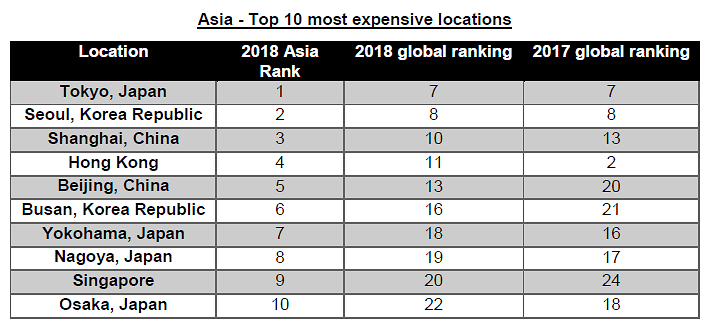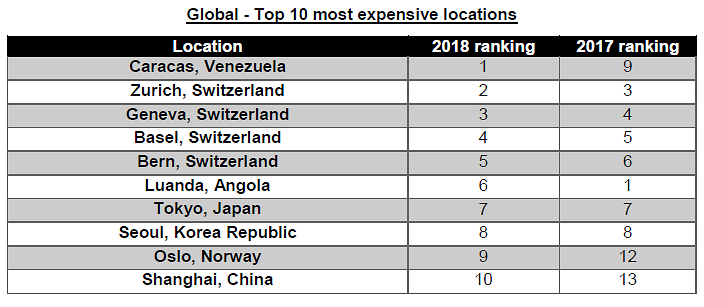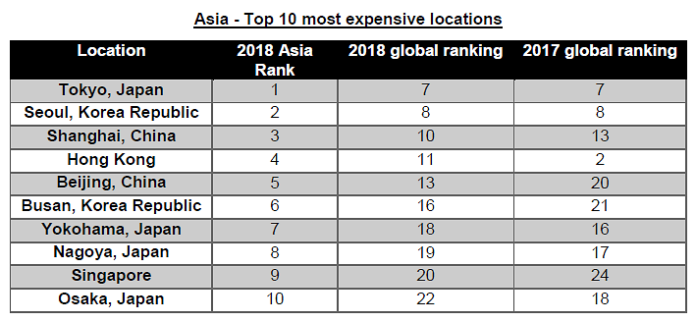SINGAPORE: Singapore has re-entered the top 20 most expensive locations in the world for expatriates, according to the latest cost of living survey by United Kingdom based consultancy firm ECA International.
In a press release on Tuesday (Jan 12), the firm said Singapore was ranked 20th most expensive in the world and ninth in the Asia Pacific region for expatriates.
In the same survey published in December, Singapore was ranked 21st most expensive globally and ninth in the Asia Pacific. In June last year, Singapore was ranked 24th most expensive globally and 10th in the Asia Pacific. The highest Singapore has featured in the ranking was at 18th place globally in 2016.
“The price of goods and services included in our basket of goods has only seen modest increase in Singapore over the past 12 months, in line with other similar economies in Asia,” said ECA International’s regional director for Asia Lee Quane.
“However, the rise in the rankings has been due to the relative strength of the Singapore dollar versus the US greenback in the past year,” he added.
Tokyo is the most expensive location in the region for expatriates.
Hong Kong’s ranking fell significantly from second to 11th place, its lowest since 2015. The main reason, according to Mr Quane, was the fall in value of the US dollar, against which the Hong Kong dollar is pegged, over the last year.
Noting that Tokyo’s global ranking has remained relatively static in the past few years – staying in seventh place in the latest rankings – Mr Quane said that it was only the yen’s relative strength against the US dollar that has seen the Japanese capital overtake Hong Kong to become the most expensive place in Asia for foreigners to live and work.

(Table: ECA International)
Meanwhile, skyrocketing inflation in Venezuela has propelled its capital Caracas to the top of the global rankings, overtaking all cities in Switzerland and last year’s most expensive location, Angolan capital Luanda.
“The economic situation in Venezuela has become increasingly volatile with inflation reaching an astounding 7,000 per cent in the year to March 2018 and 1,800 per cent over the last six months alone,” Mr Quane said.

(Table: ECA International)
ECA International said in the press release that the twice-yearly survey is to help companies calculate cost of living allowances so that their employees’ spending power is not compromised while on international assignments.
The surveys compare a basket of like-for-like consumer goods and services commonly purchased by assignees in 475 locations worldwide, excluding certain living costs such as accommodation and school fees, which are usually covered by separate allowances.





